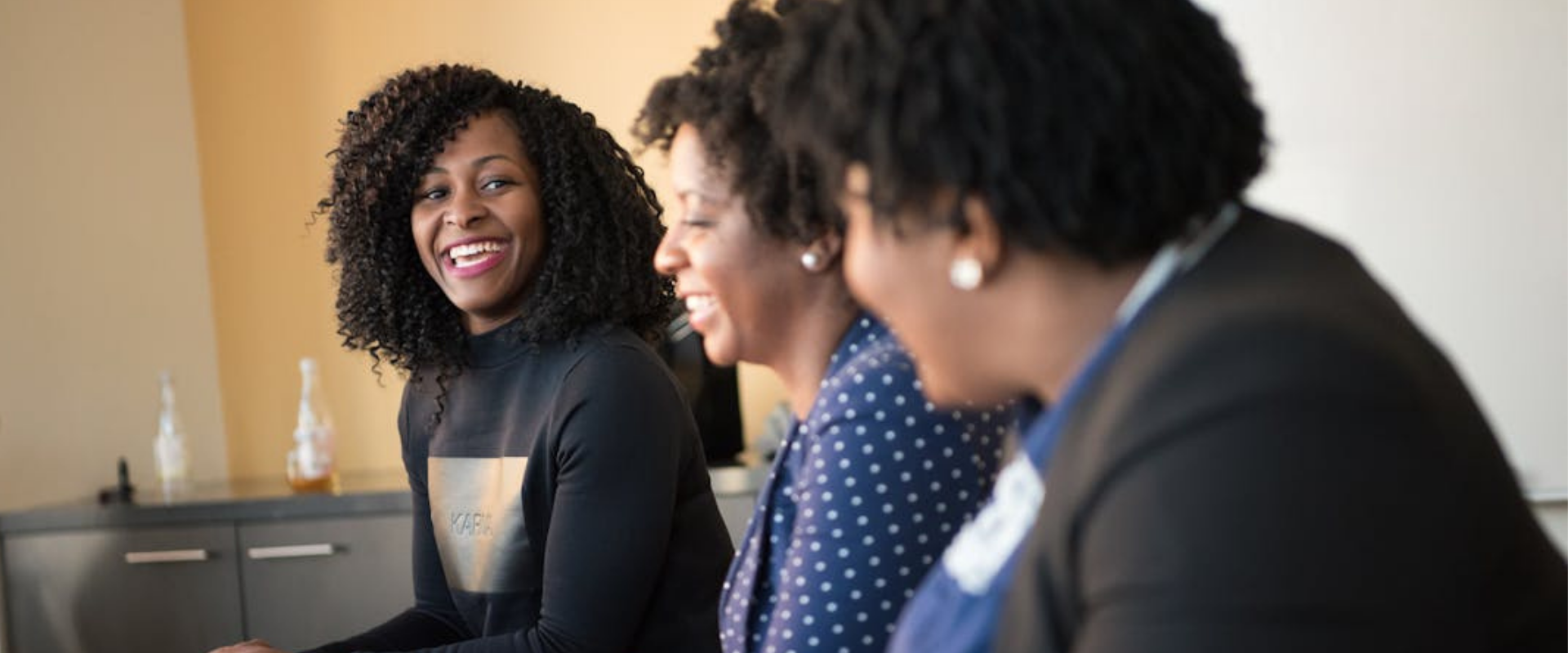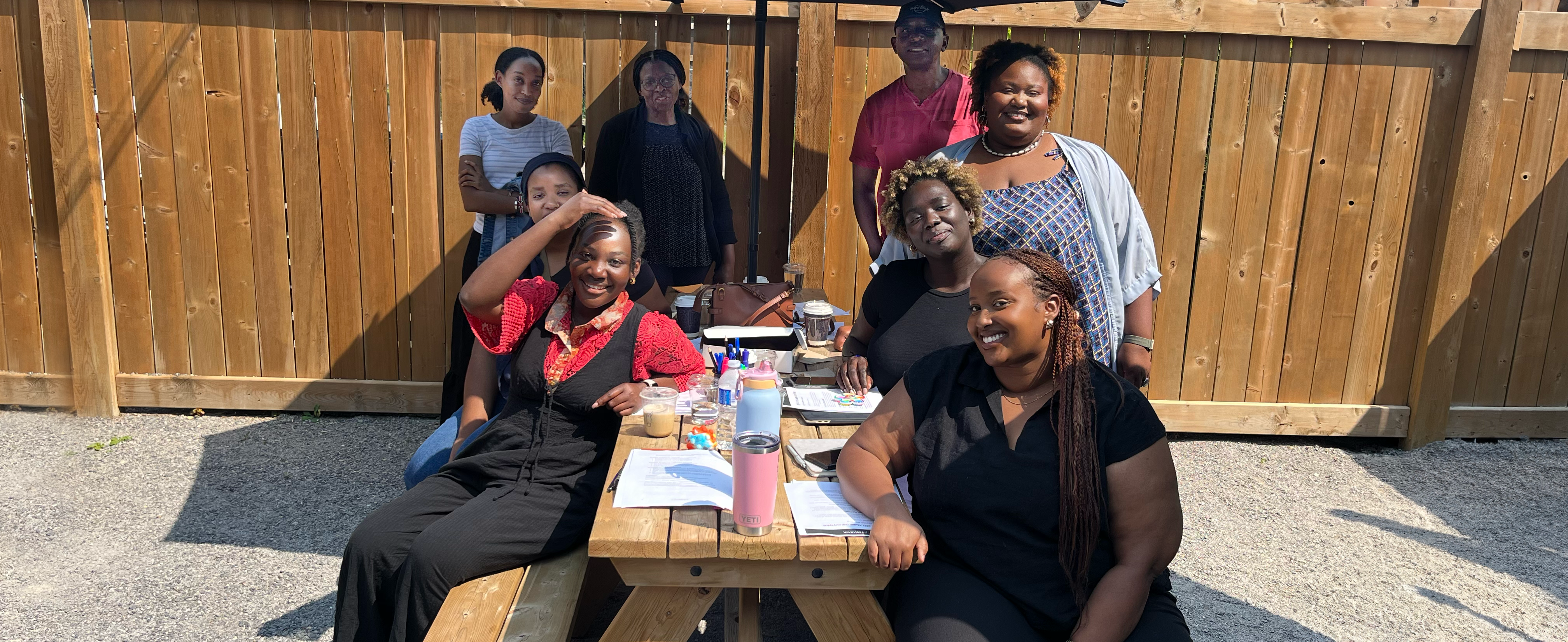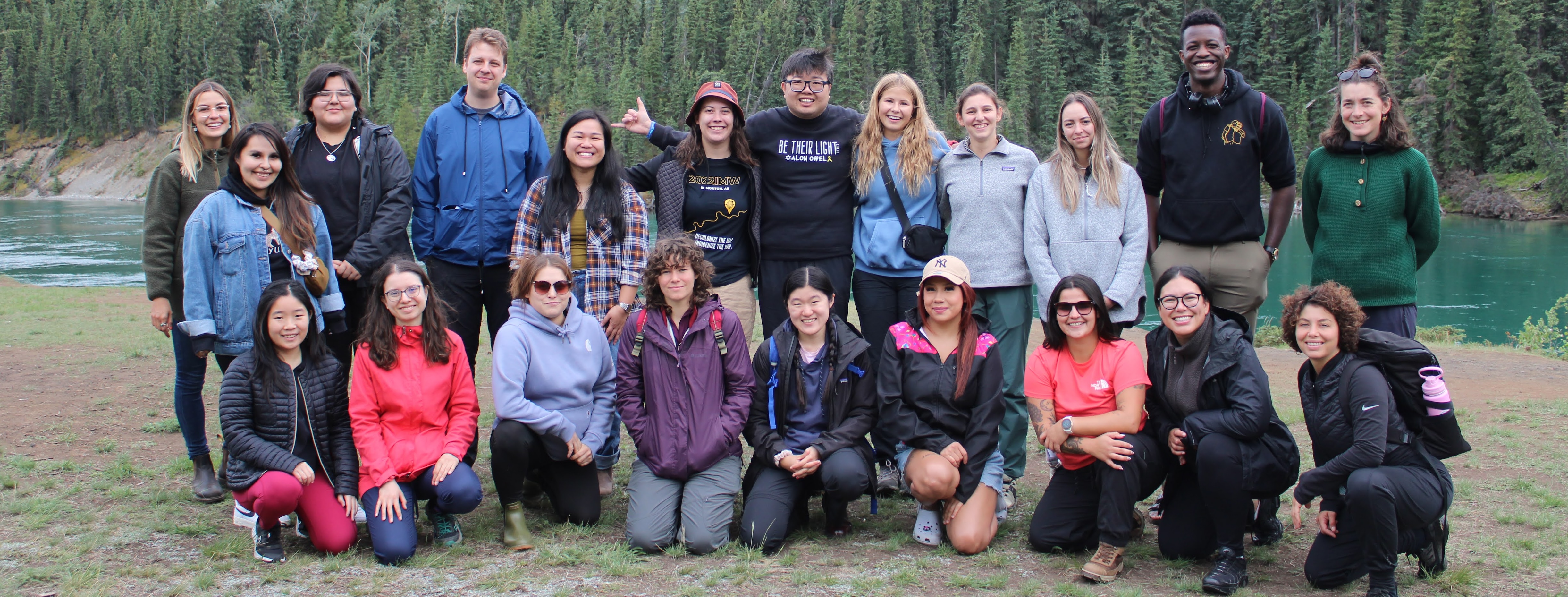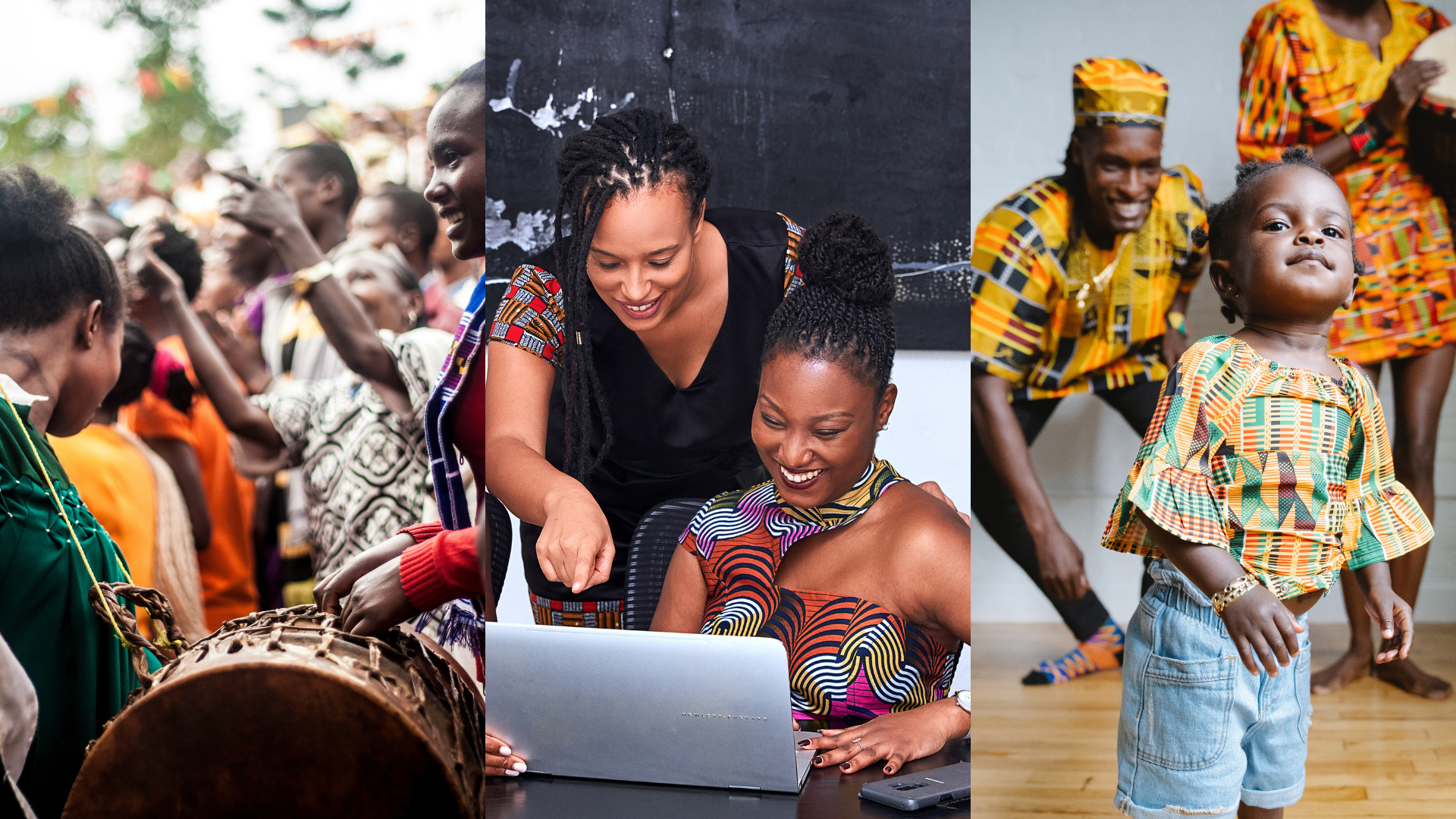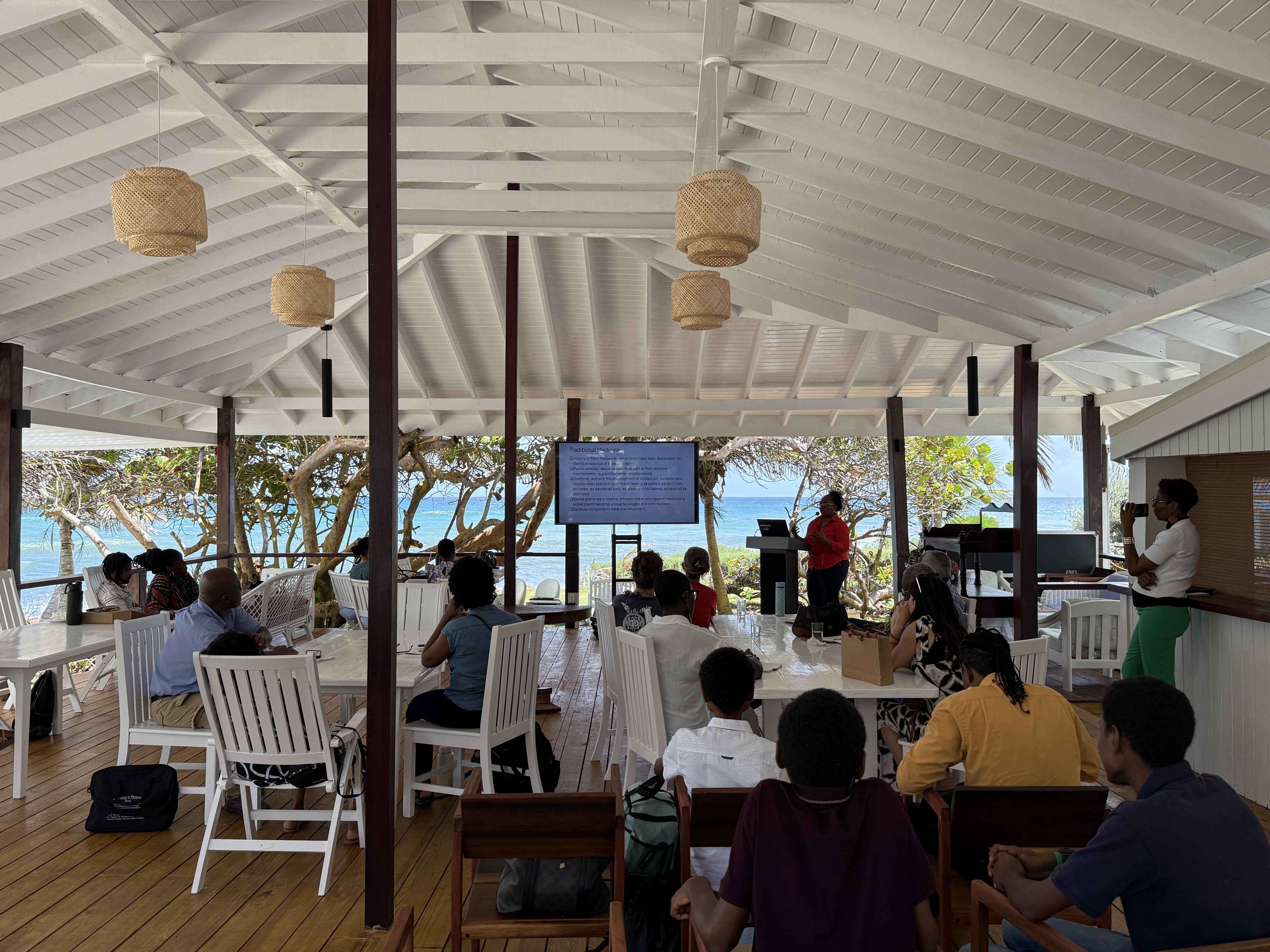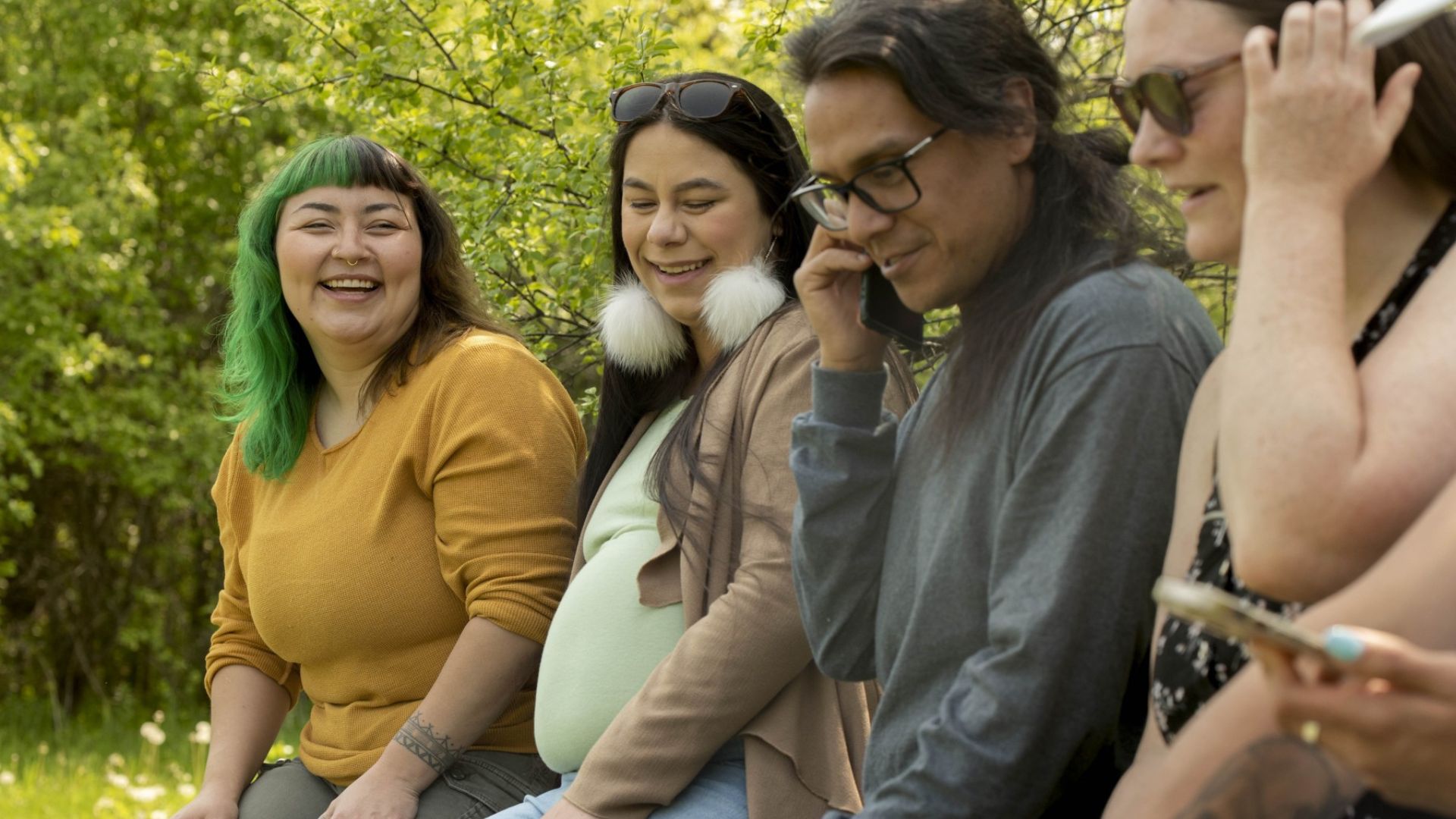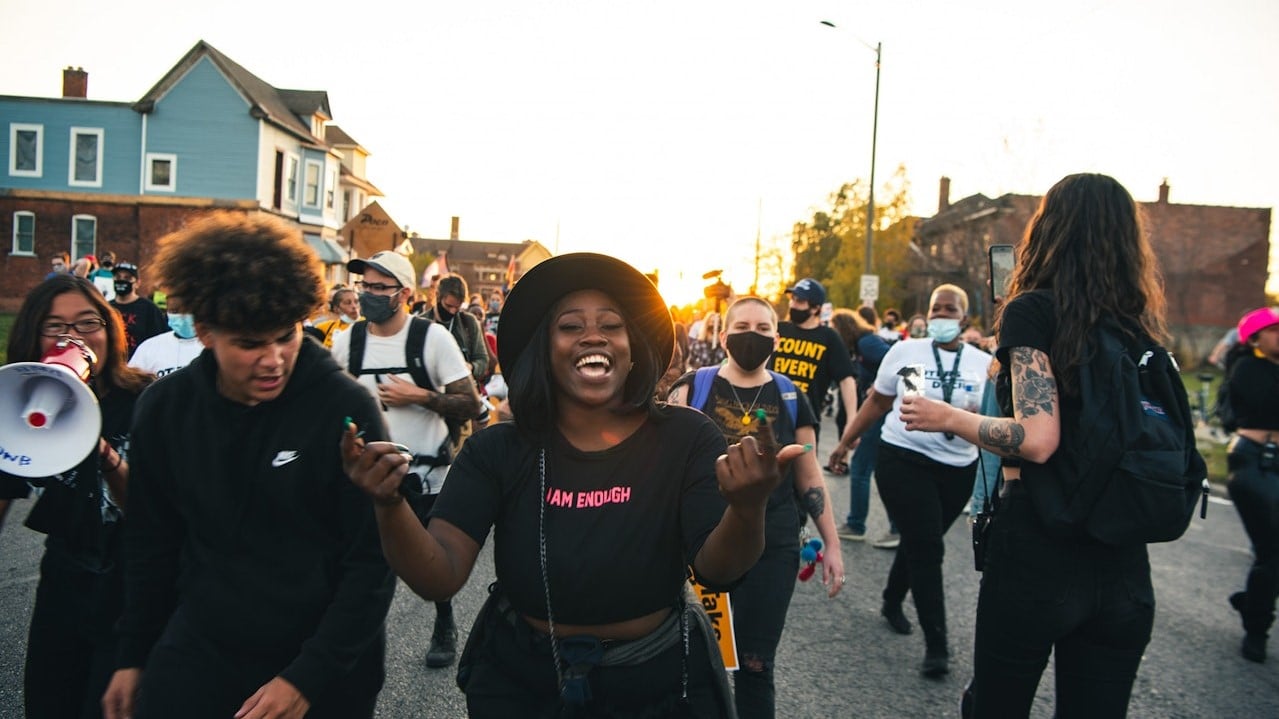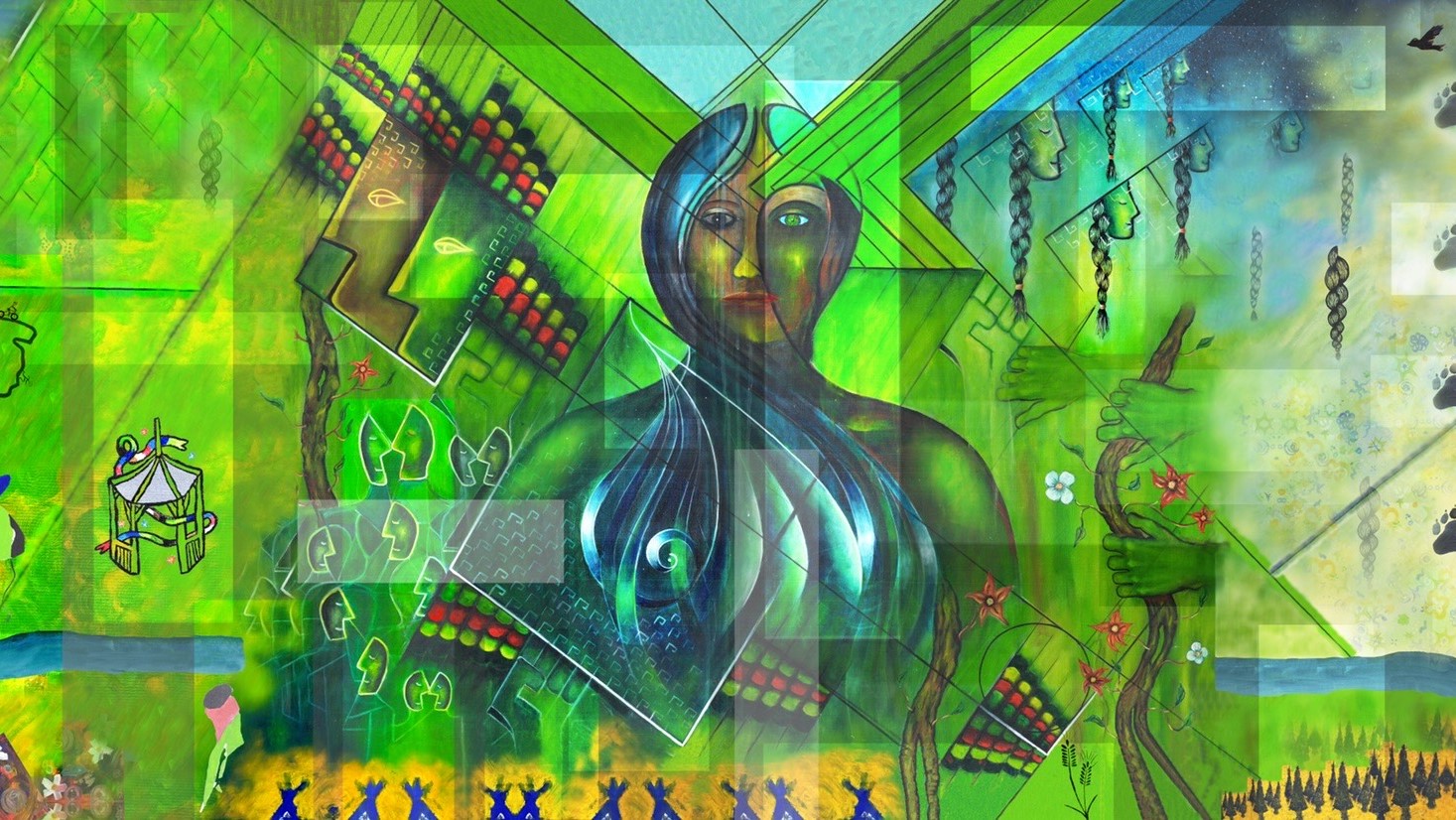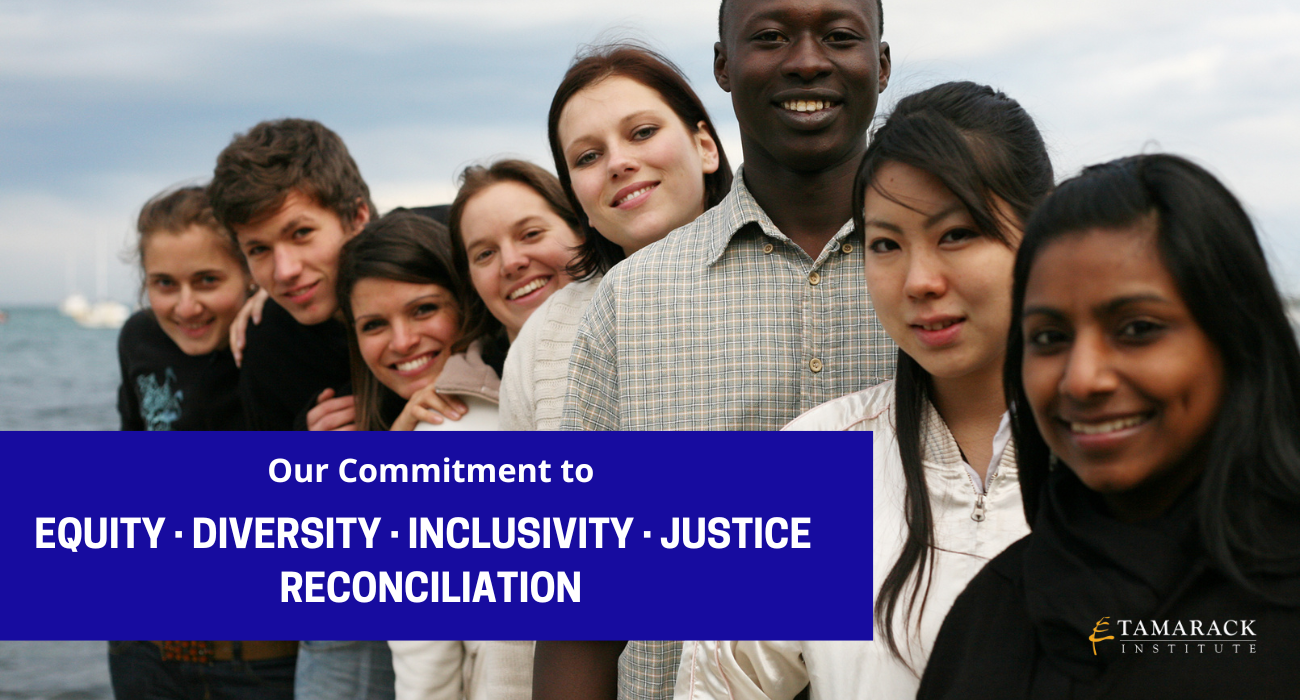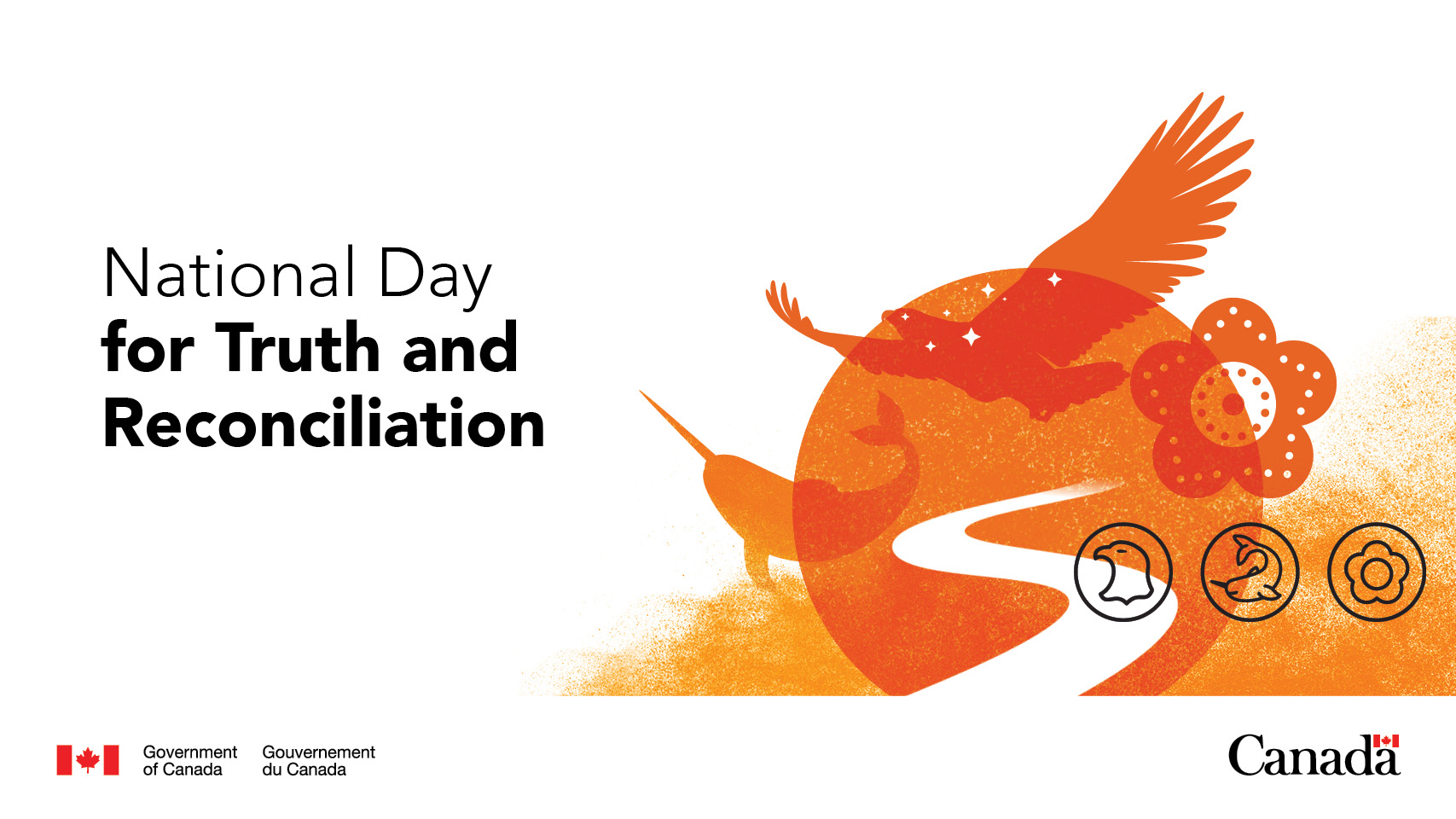Co-authored by members of the Black, Indigenous, and Racialized Community of Care for Equity Practitioners in Edmonton.
Shared Learnings for Racialized Practitioners
As we began our discussion on the importance of building equitable collaborations, a member of our community raised an important concern,
“It’s hard to engage in this discussion when my current workplace situation has me feeling stuck, exhausted, and ready to give up”
As a community, it felt more important to meaningfully respond to a community-raised wellbeing concern than stick to a pre-planned agenda about building equity into our collaborative work. In co-writing this blog, it also felt important that we begin by sharing our collective systems navigation strategies with the Black and Brown bodies we envision reading this blog. You might be reading as a non-racialized individual and also find our strategies helpful, or you might find it broadens your understanding of what your peers are experiencing, and that’s okay too. We encourage you to keep reading.
Black and Brown individuals are forced to navigate systems built on colonialism and, therefore, continue to uphold whiteness at the expense of their well-being. The struggle to find spaces of hope in such oppressive systems is daunting. It takes wisdom, it takes courage, it takes practice. Below are some examples of systems navigation strategies offered by members of Edmonton’s Community of Care, learnings that have helped us stay within and committed to the work of building just and caring systems.
-
Redirect Your Energy: It’s okay to tap out once in a while. When you have feelings of despair and hopelessness, determine if you have the capacity to continue offering your contributions. You might need a break, or you might find your productive energy is better served in spaces and communities that make you feel cared for, heard, and valued: spaces where you can see your effort result in a positive impact. Surrounding yourself with aligned individuals may serve as a reminder of what is possible.
-
Find Joy: Accept that change is hard and takes time. Celebrate small wins and moments of joy that keep you motivated. Understand where you get your happiness from and allocate the time you need to do those activities, whether in your personal or professional life. Work won’t always feel joyful, but engaging in activities that restore us may help us remember our passion for the work we do or guide us in a new direction. That’s okay too.
-
Sit with the Nuance: We rely on the systems that contribute to our frustration. Instead of adopting binary thinking, slow down to understand the nuance of the situation. Reflecting on nuance with yourself or others can help you see new perspectives, which might offer an opportunity to redirect our frustration into developing impactful solutions.
-
Remember Your 'Why': Keep your goals and motivations at the forefront to stay focused on the passion you bring to your work. Take the time to remember your ‘why’ and reflect on what progress has been made, no matter how small, and what realistic next steps may look like.
-
Get Your Flowers: Accept the gifts, celebrations, and validation that come your way: it’s too easy to move on to the next big challenge without enjoying the moment.
-
Adjust Expectations: Shift your energy to match the current conditions and environment you work within. Understanding the difference between what you’re willing to do and what you can realistically take on is imperative to your survival.
-
Rest is Your Friend: You can’t fill from an empty cup: your rest and rejuvenation is equally as important as enacting change within your communities.
-
Dream: Look to the future, be radically honest when safe, and don’t be afraid to create new systems and spaces that promote justice for those most impacted.
-
Utilize Platforms: Use available platforms to amplify your message. Lose focus on your detractors and refocus on those who have shown an interest in the work. It’s ok to ask an ally to utilize their networks to get your message across, and it might be more strategic if they are the ones to deliver it.
With that, if you’re ready to engage with the topic of equitable collaborations, we invite you to keep reading, and we invite you to revisit our strategies as much as you need.

In a world that often upholds inequitable systems, the journey towards centring equity, anti-racism, belonging, reconciliation, and justice in our collaborations is both challenging and essential. Equity-denied individuals face numerous obstacles while striving to change the system from within. However, by developing a collaborative mindset that prioritizes the experiences and impacts of those with lived and living experiences of inequity, we can pave the way for more inclusive and just collaborations.
Agreements for Equitable Collaborations
On an individual level, equitable collaborations require us to know, listen to, respect, and celebrate the contributions and gifts each person offers in service of the shared goal we’re working towards. Equitable collaboration asks us to show up with authenticity, not forcing anyone to codeswitch, or mask our emotions, or requiring us to question someone’s underlying motivations.
Shared agreements allow equity to be at the forefront of interactions and decisions made. For our community, these agreements include:
-
Mutual respect between anyone who interacts with any member of the collaborative
-
Recognition of strengths that individuals and organizations bring to the collaboration
-
Valuing mutual reciprocity by requiring everyone to contribute what they can, when they can. The contributions we each make are balanced in recognition that historical and modern-day oppression make it impossible for contributions to be evenly weighted amongst members of the collaborative. Contributions can look like simply showing up and offering your perspectives and experiences, brokering a key relationship that supports the work or opens new opportunities, or handling expenses related to sustaining the collaborative’s work. Each contribution matters.
-
Putting people first by taking time to build strong relationships. Relationship building is crucial to ensuring that the collaborative can discuss difficult topics in a way where individuals can openly voice their opinions while feeling heard and valued in that process.
-
Commitment to be open and respectful with one another as we work towards our shared goals. Equitable collaborations don’t allow individual members to have sidebar conversations that later catch someone else off guard. We name what we’re observing or feeling in the open and work through it as a collective.
-
Recognition and understanding of systemic inequities that create power imbalances both within the collaborative and within the community or broader society. We work to dismantle power imbalances that create barriers for some and opportunities for others.
Agreements need to be developed and accepted by each member of the collaborative to work effectively. We encourage you to consider what we’ve included on our list, but the real work is in developing agreements for the specific context of your collaborative and community.

Consequences of Inequitable Collaborations
When collaborations aren't equitable, the consequences can be severe. By allowing equity to be sidelined, your collaborative members may begin to experience anger and frustration when actions don’t align with words, voices aren’t heard, and promises are broken. When equity isn’t centred, it is easy to break trust, particularly for equity-denied communities engaged in the process. Collaboratives risk downloading emotional labour or failing to offer relational and gratitude compensation for those with lived and living experience of oppression.
Our community recognizes that it can be impossible to understand the impacts of inequity for those who don’t experience it, but we remain hopeful that by using our voices, we’re able to offer a glimpse into the realities of our experiences that we’ve faced to lessen the frequency of harm recurring for others.
Conditions Leading to Inequitable Collaborations
Certain conditions perpetuate inequity in collaborations: individuals exercising power over others and failing to share power, extractive processes and relationships, the reality of operating within oppressive systems, lack of trust, fixed mindsets, competition, unclear goals, hierarchical structures, gatekeeping, and resource hoarding. These conditions are byproducts of the colonial legacy we live within. It is our responsibility to further our own learning on these topics to prevent them from creeping into collaborations.
Establishing Equitable Collaborations
To foster equitable collaborations, the following are essential: culturally responsive approaches, consistent training and application of equitable practices, shared power among collaborators, transparent communication and decision-making, opportunities for reflection, mutual respect and integrity, spaces for joy and celebration, representation and community voice, reciprocity and interdependence, taking time to be in relation with one another, building trust, working through mistrust, and understanding both historical and modern-day forms of oppression.
Reflective Questions for Designing Equitable Collaborations and Developing Shared Agreements
-
How do we ensure all voices are heard and valued?
-
What steps can we take to build trust within the collaboration?
-
How do we address and navigate power dynamics?
-
What culturally responsive practices can we implement?
-
How do we ensure transparent and ongoing communication?
-
How do we celebrate small wins and moments of joy together?

Imagining a New Way Forward
Despite the challenges, there's hope in imagining a new way forward. By centring equity, anti-racism, belonging, reconciliation, and justice, we can create collaborations that feel joyful, safe and productive. Collaboration requires every individual to feel heard, valued, and empowered to contribute to collective goals.
Together, we can disrupt existing systems and build new ones that reflect our shared commitment to a more equitable world.




